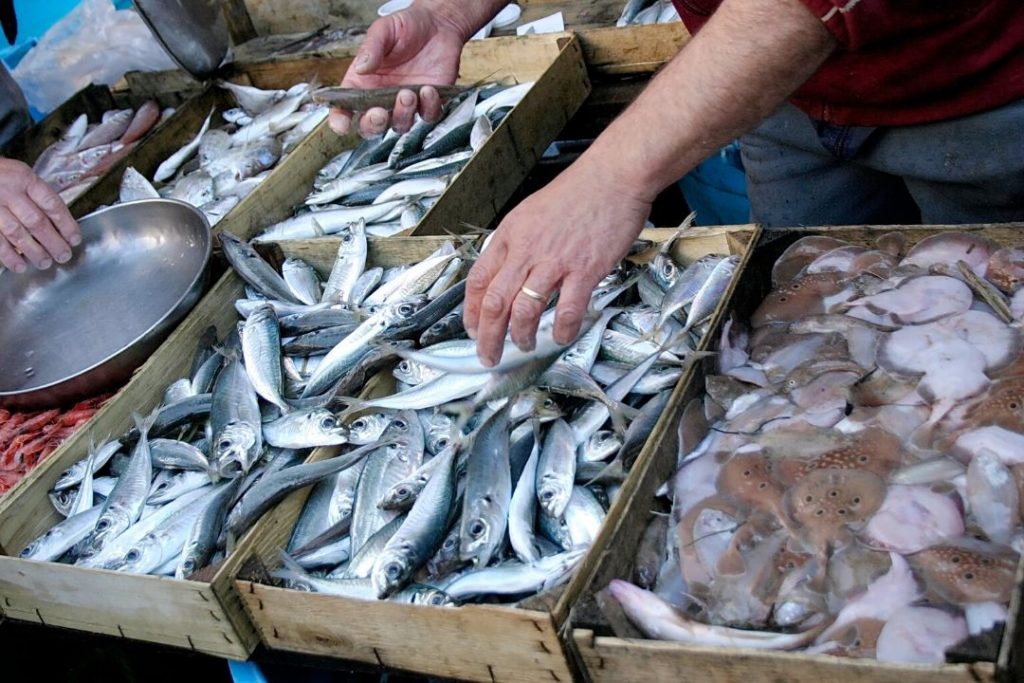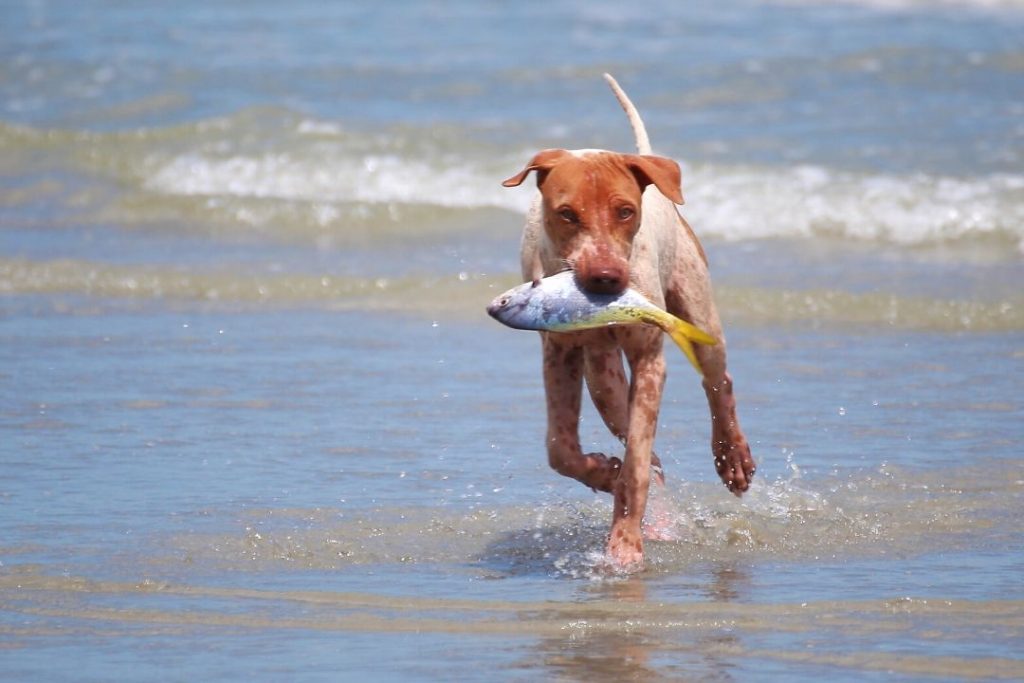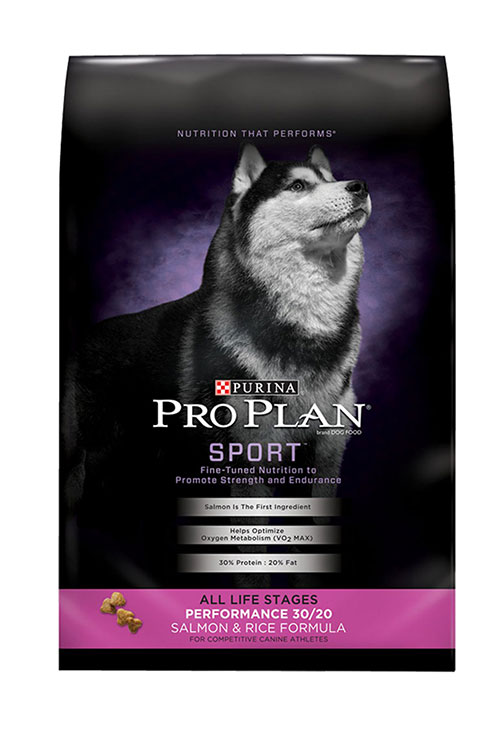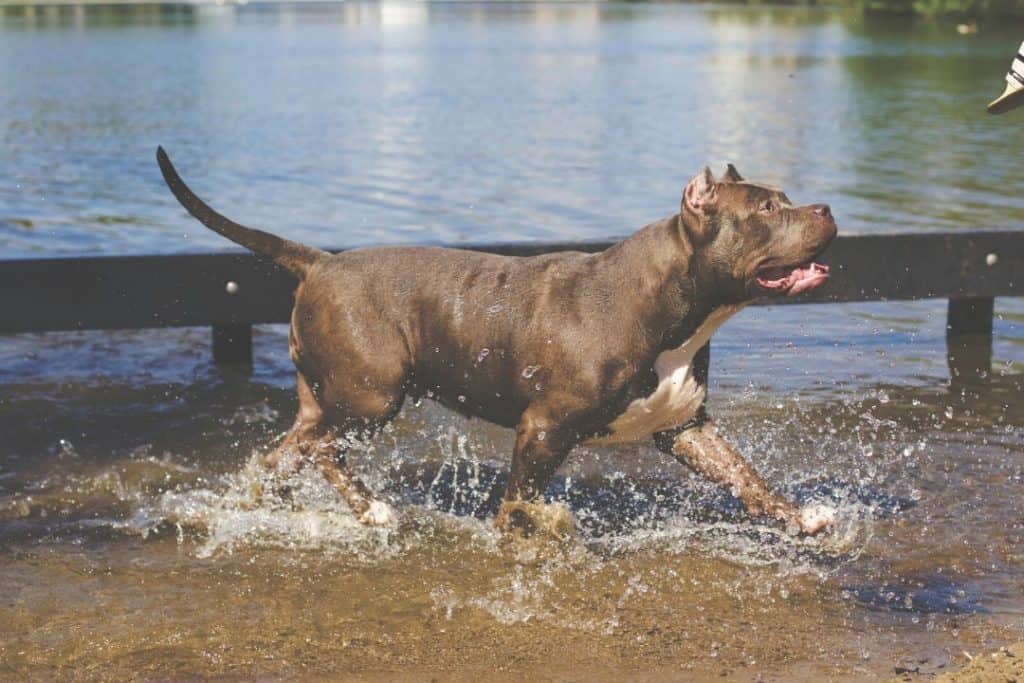This article may contain affiliate links, and I will be compensated if you make a purchase after clicking on my links (at no additional cost to you)
You’ve no doubt heard about the healthy benefits of eating fish-the omega fatty acids, the low fat and calories, and of course the protein. Or maybe you’ve read the ingredient label on your dog food bag and found that if contains fish or fish meal.
While cats are often thought of as the fish eaters of the pet world, this may have you wondering if your dog would reap the same benefits. So, can pitbulls eat fish?
Pitbulls can eat fish. Fish provides them with a great source of protein and other healthy nutrients like omega fatty acids. Pitbulls should not eat raw fish, fish bones, or long-lived fish like tuna however due to risk of bacterial infection, digestive perforation, or a heavy metal poisoning.
What Are the Benefits of Feeding Fish to a Pitbull?
Pitbulls need a high protein diet. They use this protein to produce energy and to provide them with essential amino acids. Amino acids are important nutrient transporters, help protect the body from illness, and are the building blocks of strong, lean muscle, something a pitbull is all too familiar with.
Of the 22 amino acids that dogs require, all but nine of them are manufactured in their body, the others have to come from their diet. Fish does a great job at providing some of those amino acids and a healthy protein source that will keep them fueled throughout their most active day.
On top of protein, fish is also loaded with omega fatty acids. Omega-3, in particular, has many anti-inflammatory affects. A diet high in omega-3 can help reduce joint pain due to arthritis and skin inflammation caused by allergies or other dermatologic issues. So, it’s no wonder that many humans take a fish oil supplement to help combat their achy knees and elbows. Natural anti-inflammatories, like omega fatty acids, make a great alternative to pharmaceutical ones.
Fish is a great ingredient for dogs that suffer from food allergies. The most common food allergies that our pups experience is actually to the protein sources in their diet, mainly chicken, beef, and egg, rather than to grain products.
Because of this, feeding a novel protein, like fish, can help to bypass those allergens while still providing a pitbull with complete and balanced nutrition. If your dog is experiencing chronic vomiting, diarrhea, skin issues, or ear infections, a novel protein diet including fish may help relieve some of those troubles.
A pitbull can receive all of these benefits from eating fish with the added bonus of keeping a lean and trim waistline. Most varieties of fish are lower in fat and calories than their protein counterparts.
What Are the Best Types of Fish to Feed Pitbulls?

If you’ve gotten onto the feeding your pitbull fish train, let’s just take a minute to tap the brakes. Not all types of fish are ok for our canine companions. Just like in our diet, we need to watch for high levels of mercury in the fish that we choose to feed our pup.
Fish accumulate heavy metals, like mercury, in their bodies. The longer a fish lives, the more mercury that can potentially contain. Because of this, we should find those short-lived fish, like salmon, herring, whitefish, and flounder, to give to our pitbulls.
Fortunately, the commercial dog food industry already knows this and steers away from those long-lived fish in their recipes.
What Are the Risks of Feeding Pitbulls Fish?
Just when you thought you’d found the perfect protein to give your canine companion, here we go with a list of the potential problems of feeding fish to your pitbull. First of all, raw fish is a no-no.

Just like any other raw meat, raw fish can contain harmful bacteria, like Salmonella and Listeria. Not only are these bacteria issues for your dog, they can also cause a problem for the ones preparing the fish-you. Handling raw meat without the proper precautions can lead to an infection in humans as well.
For those along the Pacific Coast, you’re more than likely familiar with salmon poisoning.
Salmon poisoning occurs when dogs eat raw salmon that is infected with the parasite Nanophyetus salmincola. This parasite isn’t the cause of the actual problem, it’s when this parasite is infected with the rickettsia Neorickettsia helminthoeca.
This little rickettsia can cause a very high fever, vomiting, diarrhea, loss of appetite, swollen lymph nodes and death within a couple of weeks if left untreated. With all of these potential infections lingering in raw fish, it’s best to only feed your pitbull fish that is cooked.
Speaking of cooking fish, most everyone’s favorite way of doing that is in either a lot of butter or a lot of oil. While this makes for a great taste, it can cause some major digestive upset in your pitbull and possibly even a life threatening issue called pancreatitis.
If cooking fish for you dog, try baking or grilling rather than frying to keep it healthier.
Now, onto fish bones. They’re tiny, sharp, and brittle. All of this adds up to do not feed to dogs. Fish bones can become lodged in or puncture the esophagus, stomach, or intestines, causing major problems. When possible, remove the bones before giving your pitbull any type of fish.
My Samon-based Dog Food Recommendation
Purina Pro Plan Sport All Life Stages Performance 30/20 Salmon & Rice
For a great fish option for your active pitbull look into Purina Pro Plan Sport with salmon and rice.
This dog food uses salmon as the main protein coupled with 20% fat to fuel your pitbull for whatever activity the day holds.
It is also fortified with amino acids, glucosamine for healthy joints, omega fatty acids, antioxidants, vitamins, and minerals to promote overall health and longevity. Purina Pro Plan Sport is also formulated to “optimize oxygen metabolism and support endurance during exercise.”
So, if your pitbull is an incredible athlete, working dog, or just likes to have a lot of active fun, Purina Pro Plan Sport with Salmon and Rice will cover their nutritional bases and keep them on the go.
Also see my complete article about the best dog food for pitbulls (dry & wet).

Conclusion
If you’re looking for a novel protein for your pitbull to help with food allergies or just want to explore other options in the world of dog food, look no further than fish.
The proper variety of fish cooked correctly can be a great addition to their commercial dog food. It can also work well as an ingredient in a balanced homemade diet or as a special treat. What’s your favorite way to let your pitbull enjoy a little fish?

Dr. Chyrle Bonk has been a veterinarian since 2010. When she’s not practicing medicine or writing, she’s spending time with her family in the great outdoors of Idaho or tending to her menagerie of animals.



